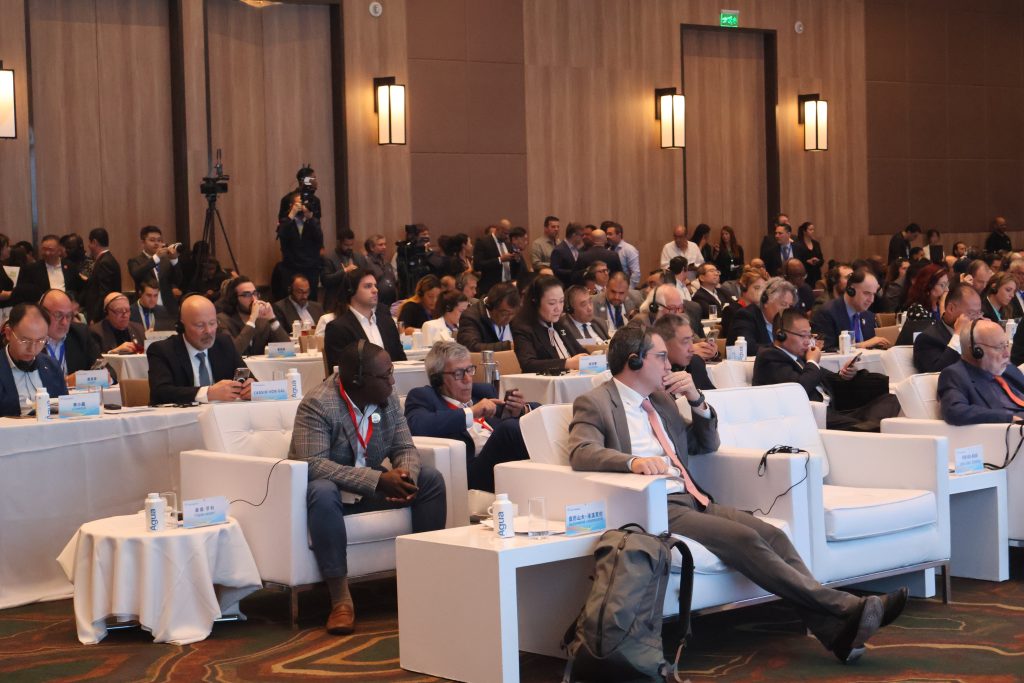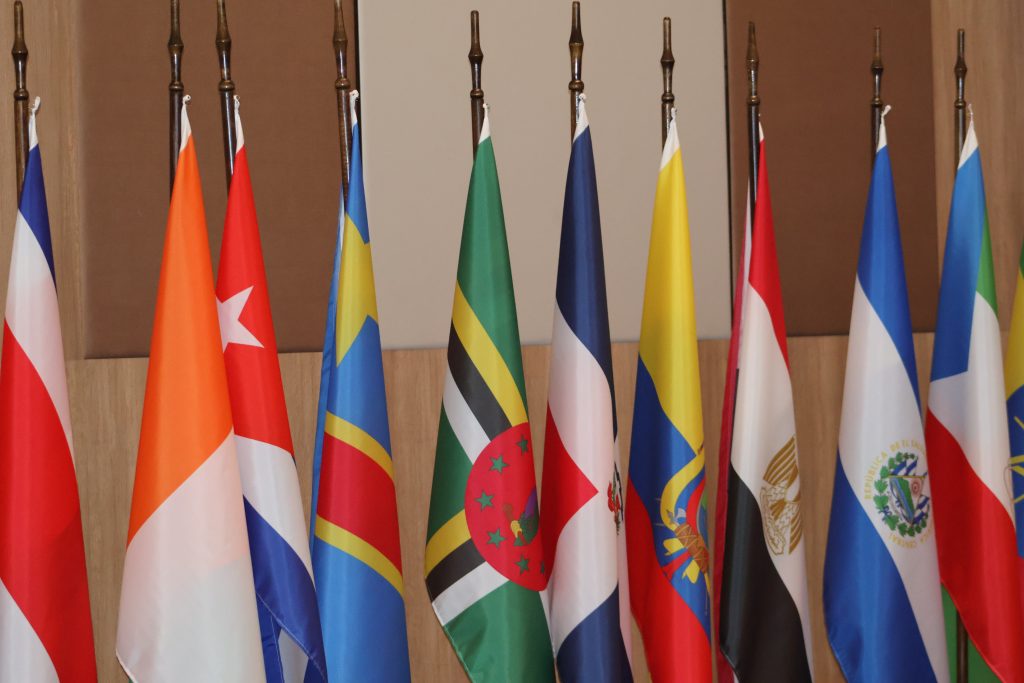
By Carlisle Jno Baptiste
The inaugural Global South Media and Think Tank Forum held in Sao Paulo Brazil November 10-11, 2024 has ended and hailed as a “great success.”
President of Brazil, Luiz Inacio Lula da Silva, emphasized the important role of the Global South in today’s world. He described the forum as “an important platform for exchanging ideas.”
Among the guests of the forum were Dima Al-Khatib, director of the United Nations Office for South-South Cooperation, Yeidckol Polevnsky Gurwitz, chair of the Asia-Pacific Foreign Relations Committee of the Mexican Senate, and Muhammad Ali Ali, managing director of News Agency of Nigeria. The guests asserted that the Global South is experiencing significant development, greatly impacting the trajectory of world history.
They hoped that the media and think tanks of the Global South would prioritize development and cooperation and promote global governance reform guided by the principles of fairness, justice, openness, and inclusiveness. The guests called for all parties involved to collaborate to boost the new development of the Global South, create a new chapter of mutual learning among civilizations, and meet the new challenges of the all-media era.
Ali Muhammad Ali, Managing Director/CEO, of News Agency of Nigeria gave what many described as a great presentation as he spoke on “Exploration and Innovation: Bracing for New Challenges in the All-Media Era.”
I am delighted once again to be in your midst to discuss a critical matter concerning our industry.
At such a trying time for the media industry across the globe, it has become imperative for us to explore viable options, and ingeniously innovate if must pilot our outlets through treacherous waters.
In an era where media products and services are constantly changing, innovation which is about change will readily define our very existence.
With the fluidity with which the processes of production and distribution of media is changing, innovation is certainly the keyword as it encompasses different aspects of the media, ranging from the introduction of new formats or technologies to changes in business models.
Exploration on the other hand is that type of innovation that requires organisations to leave their comfort zone and examine new markets, products, and business models unfamiliar to them.
As far back as 1969, management consultant, Peter Drucker, had predicted that the next major technological innovation would be an electronic appliance that would revolutionise the way people lived just as remarkably as Thomas Edison’s invention of the light bulb had awestruck the world.
The devolution of various forms of content into digitally stored information meant that print, film, recording, radio and television, and all forms of telecommunications could now be seen increasingly as part of one intrinsic complex.
This phenomenon now known as convergence has invariably given the global media its protean face.
Perhaps more than any era in the evolution of the world media, these are indeed interesting times with traditional media intrinsically fusing with its emergent digital successor in a way not ordinarily envisaged by content creators and consumers in the past.
It is amazing how profoundly this fusion has kaleidoscopically altered the global media landscape, creating in the process an All-Media behemoth.
What are the defining features of this all-media era that has brought in its wake such immense possibilities and concomitant challenges? This is a paradox that has continued to inundate media leaders as they pilot their operations in an increasingly shrinking business environment.
The features of this all-media era include the following:
Innovation: The all-media era is a time of significant technological change.
Convergence: Media content can be spread across many different media channels.
Interconnectivity: Media technologies are connected, allowing messages to move easily between people and places.
Global reach: Media content can cross national borders.
Two-way communication: New media platforms like the internet and mobile phones, allow for two-way communication.
Interactivity: New media platforms encourage feedback and interactivity.
Rapid information spread: The internet allows information to spread quickly through social media, podcasts, and websites.
Digital storage: The devolution of content to digital storage means that print, film, radio, television, and telecommunications are increasingly considered part of one complex.
What does all of these mean for our industry? What opportunities are available to explore in the all-media environment?
For one, the all-media platform offers a global reach that transcends international borders.
For another, all-media guarantees diversification of income streams through sponsored content, advertising, and e-commerce among others.
All-media platforms also enable real-time engagement with content consumers through greater interactivity.
Revolutionary as these developments are for the media landscape, the emerging challenges cutting across content, technology, revenue, and consumer preferences are also benumbing:
1. Content: Choosing content, filtering them as well as ensuring accuracy and credibility could become herculean tasks in the face of an avalanche of information.
2. Technology: Managing content across diverse platforms, data storage, accessibility, and protection as well as copyright and intellectual ownership are never-ending contentious issues.
3. Revenue: Managing multiple subscription services and losses from piracy and copyright infringement could be major distractions
4. Social media: There is the ever-looming challenge of fake news and misinformation as well as social media addiction in the desperate bid to ensure a seamless flow of content.
5. Driving business while operating under a regulatory framework for a new media landscape and establishing guidelines for content and advertising are issues that put a strain on media operations.
Despite these challenges, the all-media era offers exciting and rewarding prospects, and media leaders must put in place strategies to harness the bountiful opportunities available.
One way to do this is via strategic partnerships with critical stakeholders to foster fruitful collaborations.
Media leaders must also develop diverse content while intensifying audience engagement through various interactivity initiatives.
In the News Agency of Nigeria (NAN), Africa’s leading content provider which I lead, we are constantly innovating and exploring options to meet the demands of a diverse and increasingly choosy audience.
To drive the process of inclusivity at NAN for example, we have launched an ambitious and highly interactive website in local languages, beginning with Hausa which is spoken by about 36 million people in West and Central Africa as a first language, 20 million as a second language while the total number of speakers is in the region of 88 million.
We must also remain updated on emerging technologies and platforms, promote critical thinking on information and news sources as well as develop content creation skills.
Media leaders must continually experiment with new formats and platforms, invest in digital literacy and skills, and above all join the vanguard for promoting a brighter future for the media.




